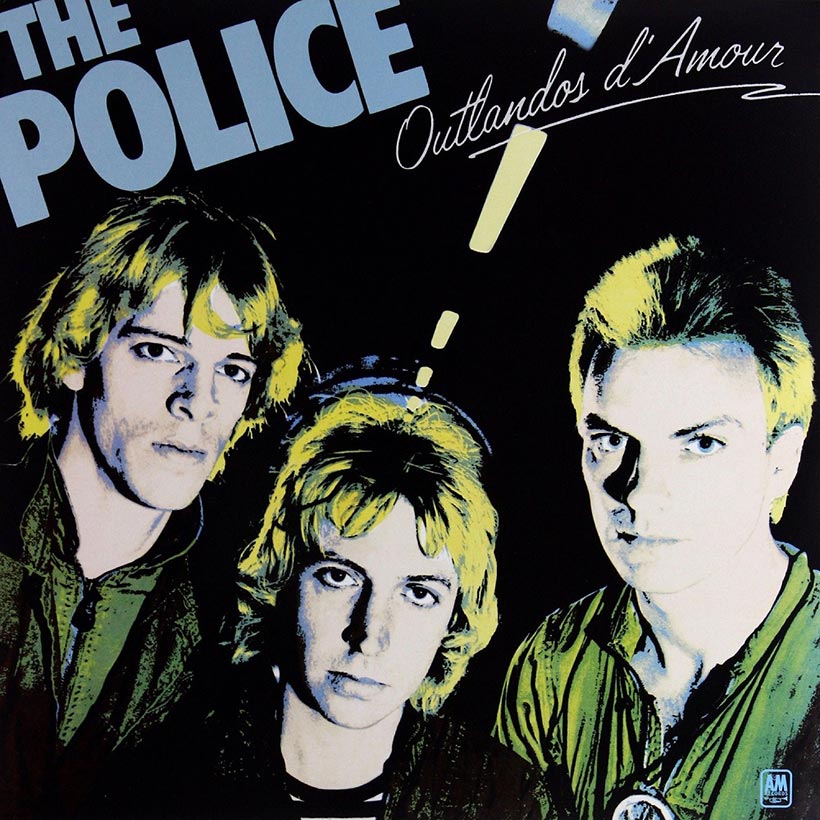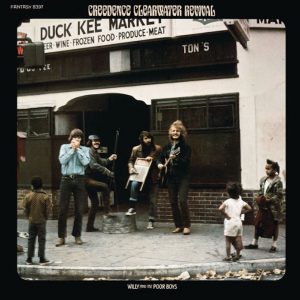The Police’s debut album, Outlandos D’Amour, boasts an enviable reputation. Widely regarded as one of New Wave’s key records, it’s racked up multi-platinum sales since its release, and is rightly cited as the disc which set the band on the road to superstardom.
Listen to Outlandos D’Amour on Apple Music and Spotify.
The Outlandos D’Amour sessions came at the end of 12 months of hard labor for The Police. Having already masterminded the group’s name, manifesto, and even some material, drummer Stewart Copeland had the blueprint in place by the time he met ambitious jazz-rock singer-bassist Gordon Sumner (aka Sting). After crossing paths in Sting’s hometown, Newcastle-Upon-Tyne, while Copeland was performing with prog-rock outfit Curved Air, the pair exchanged numbers, with Copeland imploring the ex-schoolteacher (whose nickname derived from his wasp-like black-and-yellow-striped sweater) to contact him if he were ever in London. Upon relocating there early in 1977, Sting did just that.
The band’s initial line-up coalesced around Sting, Copeland, and Corsican-born guitarist Henri Padovani. In keeping with the times, they released the aggressively punky single “Fall Out,” for Stewart’s Illegal imprint, and toured the UK with Cherry Vanilla and Wayne County And The Electric Chairs, but they soon tired of competing with the Class Of ’77’s three-chord chancers and felt the band could push things further.
Such an opportunity arrived during the summer of 1977, when ex-Gong mainstay/producer Mike Howlett asked Sting and Copeland to perform in the jazz-rock project Strontium 90, which also featured Andy Summers – a guitarist of profile whose credits included spells with Eric Burdon And The Animals and Kevin Ayers. The versatile Summers sensed kindred spirits in Copeland and Sting, made an approach to join them, and soon slotted into the band with ease, initially as a second guitarist, but then transforming the band’s sound as the full-time replacement for a departing Padovani.
With their classic line-up in place, The Police quickly made headway. They unveiled a striking new image with all three members sporting bleached-blonde hair and, despite their inherent virtuosity, played with enough aggression required to appease the punks. The trio soon gained a reputation as a hot live act with an enviable repertoire.
As the band’s de facto manager, Stewart had been in charge of creating their artwork and leading their business decisions. To mold their live set into an album, however, The Police required some outside help. Miles Copeland – Stewart’s brother and, later, founder of IRS Records – came on board as their full-time manager, loaning the group £1,500. This injection of cash bought the band out-of-hours downtime in the tiny Surrey Sound Studios, where they laid down tracks on a piecemeal basis.
“Our first album was recorded on second-hand multi-track tape – at that time we couldn’t afford our own tape,” Sting recalled in 2008. “We were working in a homemade studio belonging to Nigel Gray, a doctor whose hobby was recording. There were egg boxes on the walls – a sure sign of the home enthusiast!”
Regardless, Surrey Sound successfully captured The Police at their most hungry and intense. Punk’s edge and aggression bled liberally into “Next To You” and the anthemic “Truth Hits Everybody,” while the band also worked up the distinctive pop-reggae hybrid that would soon become their signature sound on “So Lonely” and the bouncy “Hole In My Life.”
Elsewhere, “Born In The ’50s,” a vivid paean to teenage liberation and the events that changed the world during the 60s (“We were the class they couldn’t teach/’Cause we knew better”), reflected Sting’s rapid evolution as a lyricist, while the angst of “Can’t Stand Losing You” and “Roxanne” both had “hit single” stamped all over them. Inspired by a visit to Paris’ red-light district and the city’s sex trade, the memorably infectious latter song helped the band score a long-term deal with A&M Records.
Due to its subject matter, “Roxanne” received a BBC Radio 1 ban when A&M initially released it, on April 7, 1978. However, by the time Outlandos D’Amour (whose title loosely translates as “outlaws of love”) was released, on November 2, 1978, The Police were making waves in both the UK and US. At home, “Can’t Stand Losing You” became a minor hit after the band’s acclaimed Old Grey Whistle Test TV debut, while the reissued “Roxanne” finally provided the band with a Top 20 UK breakthrough in April 1979.
Thanks to persistent no-frills gigging and rave reviews – such as one in the Los Angeles Times, which hailed Outlandos D’Amour as “the most inviting mainstream rock debut since The Cars’ LP” – Sting, Copeland, and Summers also began selling out ever-larger theatres in the US. “Roxanne” also went Top 20 Stateside, and when The Police made their triumphant North American return, in April ’79, they were gearing up to go global with their sublime second album, Regatta De Blanc.
The 6CD box set Every Move You Make: The Studio Recordings can be bought here.




